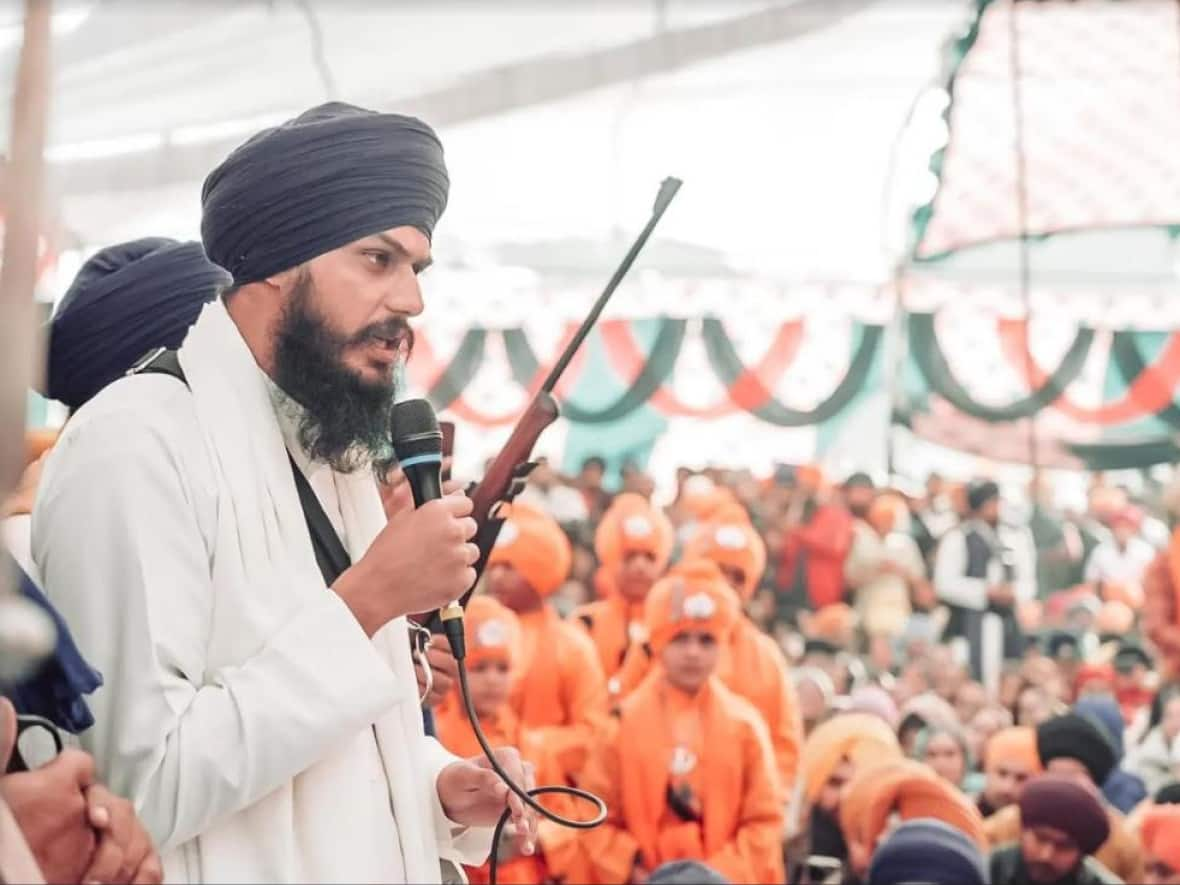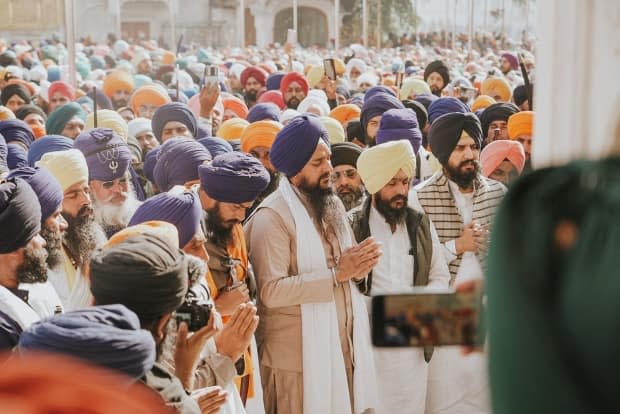B.C. man who travelled with Sikh leader being hunted by police says controversial figure is 'regular guy'

A B.C. photographer who spent four months documenting self-styled preacher Amritpal Singh in India last year says he fears for the safety of his friends and family in the Punjab region of India.
Gurkeerat Singh of Abbotsford, B.C., says he's not sure he'll be allowed to return to India as Punjab police carry out what it has called a "mega crackdown" to locate Amritpal Singh and his supporters for allegedly attempting to "disturb law and order."
The manhunt has resulted in state-wide internet blackouts, social media blocks, travel restrictions and curfews as officers have made more than 100 "preventative arrests."
Police have accused Singh and his supporters of attempted murder, obstruction of law enforcement and creating disharmony, but his supporters insist he is peaceful and instead say it is the Indian government that is violating human rights — allegations backed by Canadian academics and activists who say India's government is using the hunt as an excuse to crack down on dissent.
Vacation turned movement
Gurkeerat Singh first heard of Amritpal Singh during a family visit to India in October of last year.
What had started as a three-week vacation, Singh says, became a four-month journey to create a documentary on the self-styled preacher and his movement.
"He's the same age as me … born in 1993, and when you talk to him, he's just this regular guy."
"[But] I saw how the masses were gathering with him. No one was gathering like that [in Punjab] for nearly 20 years," said Singh, alleging coverage of the movement by Indian media was not accurate, which prompted him to document it himself.
Singh says his work in India was voluntary and not paid.

Drugs to division
Amritpal Singh, the leader of the separatist organization Waris Punjab De (Heirs of Punjab), quickly gained fame for his work on Punjab's drug crisis and his calls for youth to reclaim their religious roots.
"[Amritpal] actually had two addictions centers and was welcoming anyone who wanted to get his support … and doing it all free of cost," Gurkeerat Singh said.
In India, Singh says he witnessed countless families share stories of their children — some as young as 13 — becoming addicted to drugs, such as heroin.
"Every single family has a story about overdose deaths — their sons, daughters dying in overdoses," he said.
Singh says the group also engaged in conversations about Punjab separatism.
Punjab is India's only Sikh-majority state with a long history of a movement hoping to create a Sikh nation known as Khalistan.
Calls for self-determination
In the 1980s and 90s, a Sikh militant insurgency and counterinsurgency left thousands dead and resulted in the assassination of then Indian prime minister Indira Gandhi.
Gandhi sent the military into the Golden Temple, the holiest shrine in Sikhism, in 1984 to root out the insurgency's leader and his supporters in a bloody episode that infuriated Sikhs around the world.
Amritpal Singh has been accused of threatening Indian Home Minister Amit Shah, saying he would suffer the same fate as Gandhi, who was shot by her two Sikh bodyguards at her home in Delhi.
But Gurkeerat Singh claims the man he came to know was a peaceful preacher.
"He was talking about self-determination … and he was doing it in a peaceful way and was being vocal about it," he said.
"The events going on now just show that even if someone speaks first peacefully in Punjab, their voice is suppressed, and they're made a target by the government."

Shivaji Mukherjee, a University of Toronto Mississauga professor who studies political violence in India, said because of past experiences, the Indian government is "always worried that there could be some potential radical elements, whether in the diaspora in Canada or England or in the Middle East, to come back and try to spread … seeds of discontent."
"This particular government [of Prime Minister Narendra Modi and his Bharatiya Janata Party], being Hindu nationalist and more conservative, probably is even more worried," he said.
Unable to contact family, friends
Singh hasn't heard from his parents for one week after a state-wide internet blackout was called by the Indian government.
"I have not been able to get in touch with them at all," Singh said.
"[The] media blackout in some areas has been lifted. But where I'm from in [southern] Punjab, the media blackout is still present."
WATCH | Worried Sikh Canadians fear for the safety of their families in India:
While he's managed to reach family who will check in on his parents, Singh says several of the friends he stayed with while travelling with Amritpal Singh have gone missing.
"They're unaccounted for. They're not arrested. No one knows what's happened to them."
"In the 80s and 90s, we saw a lot of men, young men picked up and disappeared … I fear history is repeating itself," he said.
He also fears he may never be able to return to Punjab.
His Instagram account has already been blocked in India by demand of the Indian government, which has also happened on Twitter to people such as NDP Leader Jagmeet Singh and Canadian poet Rupi Kaur.
"India is known to put people on a blacklist … and I'm worried that I might be deported or arrested if I go back."


